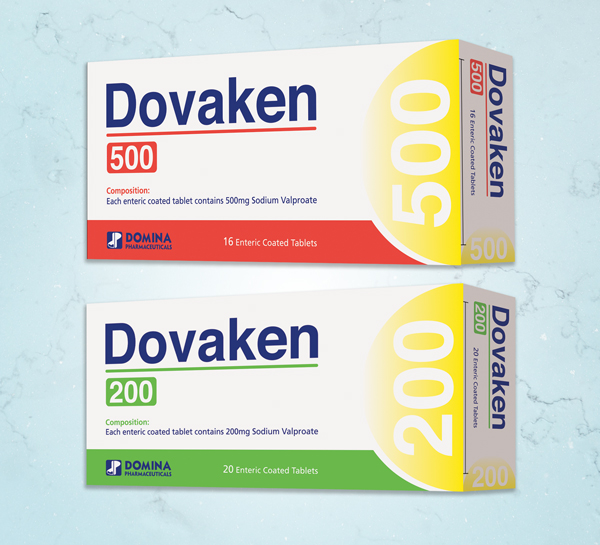
|
Female children/Female adolescents/Women of childbearing potential/Pregnancy: Valproate should not be used in female children, in female adolescents, in women of childbearing potential and pregnant women unless alternative treatments are ineffective or not tolerated because of its high teratogenic potential and risk of developmental disorders in infants exposed in utero to valproate. The benefit and risk should be carefully reconsidered at regular treatment reviews, at puberty and urgently when a woman of childbearing potential treated with valproate plans a pregnancy or if she becomes pregnant. Women of childbearing potential must use effective contraception during treatment and be informed of the risks associated with the use of valproate during pregnancy. In women planning to become pregnant all efforts should be made to switch to appropriate alternative treatment prior to conception, if possible. Valproate therapy should only be continued after a reassessment of the benefits and risks of the treatment with valproate for the patient by a physician experienced in the management of epilepsy. |
COMPOSITION:
Each enteric coated ta/blet contains 200 or 500mg sodium valproate.
MECHANISM OF ACTION:
Dovaken inhibits GABA - Transaminase, thus increasing the concentration of cerebral GABA. It has also been reported that there is a strong correlation between anticonvulsant potency of valproate and its ability to reduce concentration of cerebral aspartate.
INDICATIONS:
Dovaken is an active antiepileptic. It is used for management of simple absence seizures, typical absence seizures, myoclonic epilepsies, and against tonic seizures induced by electro-shock. Dovaken is used effectively in some patients, for management of partial seizures with complex symptomatology (Psychomotor or temporal lobe seizures), or myoclonic and akinetic seizures. Dovaken has mood stabilizing effect.
DOSAGE:
Dovaken should be taken with or after food.
Adults: Dosage should start at 600mg daily in divided doses, increasing by 200mg at three-day intervals until control is achieved. This is generally within the dosage range 1000mg to 2000mg per day (20–30mg/kg/day). Where adequate control is not achieved within this range the dose may be further increased to 2500mg per day.
Children over 20 kg: initial dosage should be 400mg/day (irrespective of weight) in divided doses with spaced increases until control is achieved this is usually within the range 20–30mg/kg/day. Where adequate control is not achieved within this range the dose may be increased to 35mg/kg/day.
Children under 20kg: 20mg/kg/day in divided doses; in severe cases this may be increased but only in patients in whom plasma valproic acid levels can be monitored. Above 40mg/kg/day, clinical chemistry and haematological parameters should be monitored.
CONTRAINDICATIONS:
Hypersensitivity to sodium valproate or patients with liver dysfunction.
SIDE-EFFECTS:
Nausea, vomiting, diarrhea or constipation, abdominal pain, decrease or increase of appetite, dyspepsia, sedation, tremor, ataxia, headache, dizziness, skin rashes, pruritus, photosensitivity, transient hair loss.
DRUG INTERACTIONS:
Dovaken increases the efficiency of phenobarbital, primidone, and clonazepam, and the toxicity of phenytoin. Drugs which are extensively bound to plasma protein (like aspirin, carbamazepine, dicumarol, phenytoin) can change valproate plasma concentration.
The administration with other hepatotoxic drugs should be avoided.
PRECAUTIONS:
- It should be used with great caution in children under 3 years of age, especially those with congenital metabolic disorders, or mental retardation or organic brain disease.
- Caution is recommended in patients with pre-existing liver disease, or in multiple anticonvulsant therapy. Routine measurement of liver-function should be carried out, before and after therapy, with enough intervals, especially during the first six months of therapy. Immediate withdrawing of drug is indicated when any hepatic dysfunction occurs.
- It is advised not to drive or operate machinery during treatment.
USE IN PREGNANCY AND LACTATION:
The product should not be used during pregnancy. Prophylactic measures should be undertaken to prevent pregnancy. It can be used during lactation if the physician considered that.